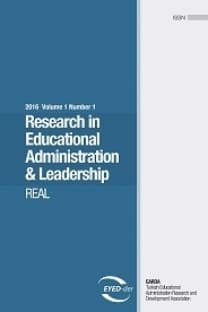The Critical Potential of Nordic School Leadership Research: Fundamental but Often Forgotten Perspectives
Many phrases used in education policy discussions are very vague. They are fluid signifiers that everybody can interpret and understand in their own way. They are useful when building political consensus or affirmation. But the phrases are often too vague when trying to communicate and understand educa-tion and educational leadership because they obscure the elements in the phrase: who is the political agent, and what are the relations between policy, research, school and staff. They also hide the purposes of schooling, and the societal values and power in the turna-round of political interests from education towards governance that are implicit in the ‘as skilled as they can be.’ It could have said as knowledgeable or as enlightened or autono-mous as they can be. These are some of the fundamental phenomena in education and leadership, and they seem to be forgotten. With this special issue we want to put critical analyses into the centre of research again as we analyse some of the dilemmas and conflicts between remembered and forgotten in-sights in education research on policy, society, schools and educational leadership, and thus between diverse and often conflicting interpretations of – what is fundamental in Nordic contexts: Danish, Finnish, Islandic, Norwegian and Swedish – school leadership re-search
Keywords:
nordic schools, leadership, research,
___
- Moos, L. (2018). Educating and Leading for World Citizenship:Through Technocratic Homogenisation or Communicative Diversity? Nordic Journal of Comparative and International Education (NJCIE), 2(2-3), 7-24.
- Moos, L. (2019a). Fra en dannelsesdiskurs mod en læringsmålstyret diskurs [From a Democratic Bildungs Discourse towards a Outcomes based Discourse]. In L. Moos (Ed.), Glidninger -‘usynlige’ forandringer inden for pædagogik og uddannelser. København: DPU ebooks.
- Moos, L. (Ed.) (2019b). Glidninger - ‘Usynlige forandringer inden for pædagogik og uddannelser [Slidings - ‘Invisible’ transformations in education] (Vol. http://edu.au.dk/fileadmin/edu/Udgivelser/Eboeger/Ebog_-_Glidninger.pdf). Copenhagen: DPU.
- Moos, L., Nihlfors, E., & Paulsen, J. M. (Eds.). (2018). Leading and organising education for citizenship of the world – through homogenisation or communicative diversity? (Vol. 2). Oslo: Nordic Journal of Comparative and International Education (NJCIE).
- Moos, L., & Wubbels, T. (2018). General Education: Homogenised Education for the Globalized World? Zitschrift fürErziehungswissenshaft, 21(2), 241-258. Skott, P., & Nihlfors, E. (2015). Educational Leadership in Transition.Nordic Journal of Studies in Educational Policy, NordSTEP, 2015(3), https://www.tandfonline.com/doi/full/10.3402/nstep.v3401.3041 0.
- Yayın Aralığı: Yılda 4 Sayı
- Yayıncı: Dokuz Eylül Üniversitesi
